Winner, 2018 Bronze IPPY Medal for Popular Fiction
-
Macedonian rights sold to Prozart Media, Skopje, Macedonia
When twenty-two-year-old Marla finds herself unexpectedly pregnant, she wishes for a family, but faces precariousness: an uncertain future with her talented, exacting boyfriend, Liam; constant danger from her roommate, Dani, a sometime prostitute and entrenched drug addict; and the unannounced but overwhelming needs of her younger brother, Gavin, whom she has brought home for the first time from deaf school. Forcing her hand is Marla’s fetal alcohol syndrome, which sets her apart but also carries her through. When Marla loses her job and breaks her arm in a car accident, Liam asks her to marry him. It’s what she’s been waiting for: a chance to leave Dani, but Dani doesn’t take no for an answer. Marla stays strong when her mother shows up drunk, creates her own terms when Dani publicly shames her, and then falls apart when Gavin attempts suicide. It rains, and then pours, and when the Bow River finally overflows, flooding Marla’s entire neighbourhood, she is ready to admit that she wants more for her child than she can possibly give right now. Marla’s courage to ask for help and keep her mind open transforms everyone around her, cementing her relationships and proving to those who had doubted her that having a fetal alcohol spectrum disorder does not make a person any less noble, wise or caring.
“Wonderful, heartfelt, heartbreaking—I can’t recommend this novel highly enough.”
—Annabel Lyon, author of The Sweet Girl
“Jennifer Spruit has such a distinct, poignant voice, and her brilliant debut novel A Handbook For Beautiful People highlights this perfectly. Through sharp characters and their complications, a driven narrative develops, enveloping us before we have a chance to judge. Jump into this novel. It will sweep you up.”
—Joseph Boyden, author of The Orenda
Marla sleeps in the car through the foothills and mountains to Banff, soothed by the dark and Liam’s edifying jazz playlist. She awakens at their hotel, a wooden palace; the snow is so much deeper here, so much more like a Christmas card. Elk nose in the snow outside the lobby window, and the banister under her hand is shiny with use. Even the lights make Marla feel beautiful, but something about the air reminds Marla of a different trip to Banff, with another man Liam’s age. A curled lip and a hard, ugly body. But that was ages ago.
They eat in a jolly pub with candles and mounted antlers on the walls. There are probably a hundred people in this tiny place, but it doesn’t feel too noisy. Just warm.
Liam puts his hands on hers. “You told her I hit you?”
“No. She’s looking out for me. I’m sorry about before.”
Liam brings out a little box. “Listen, I don’t think we’ll need her help. Marla,” he says, and stands only to bend down on one knee, “I want to marry you.”
She jumps up and knocks her plate onto the floor. “Yes!” she shrieks, holding her hand out for him to put the ring on. She’s kind of shaking. It’s like everything she imagined it would be and more.
A waiter stoops to collect her upended plate. “I’m getting married,” Marla tells him. People at tables near them applaud until Marla feels like the queen of the universe.
Liam grips her hand. “We can get married in the summer, after the baby’s born.”
“Are you saying you want the baby?”
Liam does not look at her the way a man in a movie would, with passion fogging up his eyes. He sits, smoothing his napkin on his lap. “Marla, it’s my child. If you’re set on having the baby, I should be a part of it.” He swallows and corrects himself. “I want to be a family. I want you to move in with me.”
Marla is sorting this out, reconfiguring her mental image of being a mommy onto Liam’s house, with his bed and his instruments and his students, which would totally be cleaner and quieter but completely without Dani. Marla remembers the last time Dani was on her own. “Sure, as soon as Dani can get her own place, I’m in.”
“Why do you owe her? What is she about?”
“It’s ugly, okay? You know her story.”
Liam sets his jaw and leans on his elbows. “I don’t know your part in it.”
Marla can’t get into that, so she focuses on the edge in his voice and how it bangs into the warm space of the restaurant. “She helps me.”
“She’s dragging you down.”
No one should be insulting Dani, especially not someone who is also supposed to be looking out for Marla. “Why did you hit me with that cupboard door? Because I read your letters?”
Liam speaks in a low voice. “You’re accusing me of beating my pregnant girlfriend. That’s the sort of man you think I am?”
“I didn’t deserve that.”
“You know it was an accident.” Liam snaps the ring box closed and grips the edge of the table, his voice an angry whisper. “Let me get this straight: you’re twenty-three and you work at a diner and you’re saying no to a father for your baby because of your junkie friend? And you think I hit you?” People at the next table erupt in totally unrelated laughter.
“Twenty-two. I’m twenty-two.”
A waitress brings them a floating candle while someone else dims the lights. Marla tries to collect all the thoughts in her head, but Liam is totally bent on whisper-fighting with her. “I want to know—did you do it on purpose?”
Marla scrapes her nails under the table, scratching off grains of wood. “Get pregnant? No!”
“I thought it was so you could unload Dani and live with me, but now I think you did it to punish me. Talking you out of an abortion. You’ll be rolling in child support, laughing it up together.” He has a hurt look on his face like he actually believes that.
“You didn’t even want the baby until an hour ago.”
“You’re right.”
“Listen: Dani’s not my girlfriend, and she’s got her own money—”
“How? Is she a drug dealer too?”
Liam doesn’t understand that it is Dani who gives Marla the courage to do everything difficult, Dani who told her it would be hard, but manageable. Dani who doesn’t talk in riddles and so obviously loves Marla that it scares her a bit. You don’t get it at all!” People murmur and stare, and now Marla is the trashy girl at the nice restaurant again.
“No. And I won’t.”
The waiter edges by, and Liam pulls on his earlobe. “Don’t do this here.”
“Do what—figure it out? That’s what everyone’s doing.” She makes her voice calm and looks him in the eye.
He looks around the room to see if anyone is looking at them, but they’re trying not to. She waits, which is what she should have done in the other restaurant when she told him about the baby. He’s off balance, but if she can be confident, he’ll feel her strength and meet her halfway. His face moves, and she lets him work it out, practising her patience.
It’s true. He leans closer, embarrassed. “I’m sorry. I’m under a lot of stress,” he says, like he’s apologizing that she has to see him this way. “Look. I believe you, and I shouldn’t have said all that, especially about the baby. But you need to know I’d never hurt you. Otherwise this can’t work.”
Marla pushes her new plate away. The smell of ketchup is making her nauseous. “Fair enough. I like you, Liam, but you have to like me too.”
“Good. Then we’re engaged.” He leans back in his chair and signals for the bill.
“I’m talking about all of me.”
Liam pauses with his arm in the air. “Marla, I love you, and I will marry you and raise our child. But, just to be clear, I’m not marrying Dani too.” He stands up, thin and beautiful and impossible. “You have to make a choice—the sooner, the better.”

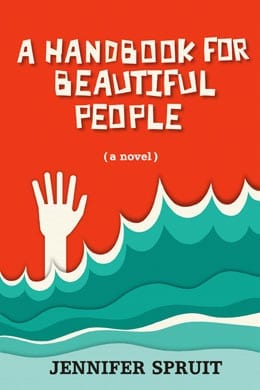

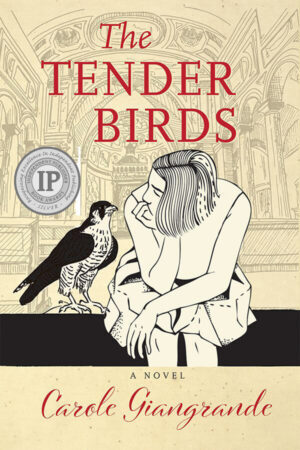
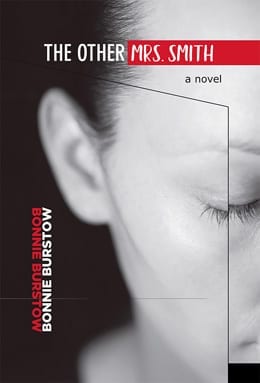
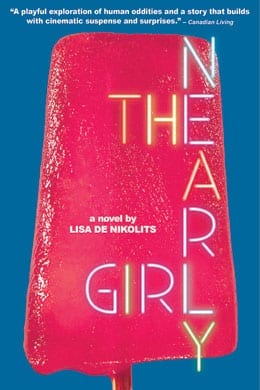

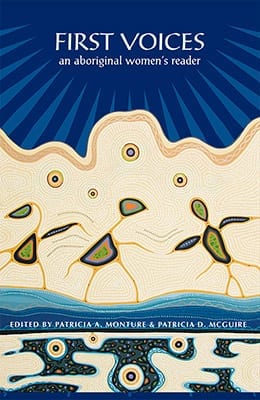
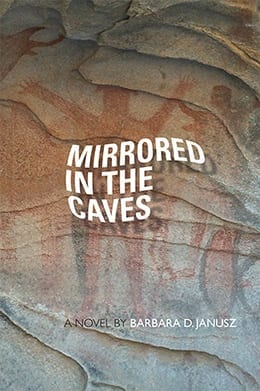
inannaadmin –
from Blog Tour Reviews:
“I give A Handbook for Beautiful People a four out of five. While none of the characters are likeable all the time, they all do have their redeeming moments–and those moments make them shine when contrasted with their realistic, gritty, low points. It took me about 30 pages in before I started warming up to the characters, especially since they were all so grey–but I loved that none of them were perfectly good. This made for a fantastic read where everything is hopeless, but people find a way–always.” —Bewitched Bookworms
“by the time I finished the last page I was hoping for more…”—Desert Bibliophile
“The supporting characters around Marla and the events in her life create one big beautiful mess. With twists, turns, breaks, floods, a baby and a decision, Marla’s journey is unique and satisfying.” —100 Pages a Day
“Jennifer Spruit has a distinct voice, which won’t be mixed up with any other. The characters are compelling, and the story is complex, in addition to heartbreaking. I suggest you approach reading A Handbook for Beautiful People expecting the unexpected.”
—Thoughts on This n’ That
“…an impressive feat from a debut author. I don’t know what Spruit’s background is but she seems to very much understand what makes a what makes her characters tick, what drives someone to addiction, and how to make readers feel empathetic.”
—Lit and Life
inannaadmin –
A Little Water
A Handbook for Beautiful People by Jennifer Spruit
reviewed by Dorothy F. Lane
Canadian Literature – October 5, 2018
https://canlit.ca/article/a-little-water
In Shakespeare’s Macbeth, Lady Macbeth responds to her husband’s angst after killing the king with the simplistic phrase, “A little water clears us of this deed.” Gavin in Jennifer Spruit’s first novel, A Handbook for Beautiful People, ponders a similarly easy self-annihilation as he stands on Calgary’s bridge: “The Bow River below is glacial, rushing and wide, cutting into sandstone bedrock like it has for centuries. . . . This is when he should try to find grounds big enough to overcome what has been done, but he has no reason.” The multifarious image of water is threaded through the three novels reviewed here. However, water in these books does not “clear” the characters of their internal and external nightmares, but erodes, distorts, isolates, and reflects the horror. All three books focus on examples of human actions and relationships that are never resolved, and of systems that spread the stain.
In Spruit’s engaging Handbook for Beautiful People, hope becomes more evident, and is accompanied by a refreshing and quirky sense of humour mixed with pathos. All of Spruit’s characters are somehow damaged by society’s definitions, and have been chewed up by larger systems of social services, institutions, and networks. Marla, living with FASD, becomes pregnant by her distracted cellist-lover, Liam, and the medical professionals immediately presume she will terminate the pregnancy. Instead, she calls on her younger brother, Gavin, the “deaf-mute” sibling now employed in a care home, who is struggling with anger, anxiety, and aggression issues. Gavin is also looking for the alcoholic mother who abandoned him. Marla’s housemate, Dani, is an addict who resorts to prostitution to support her habit, but longs to be reunited with the son removed from her custody. It’s an eccentric and potentially-explosive combination of characters, and Spruit’s narrative aptly alternates among them with the improbable title of her novel as enigma. The “Handbook” refers to a notebook Gavin finds at a bus stop, completely empty, and which he appropriates and begins to fill with his own observations. The notion of “beautiful people”—an ironic play on the adage that “beauty sells”—is set against this cast of apparently unattractive people. Even the notion of a “handbook” is treated ironically, since it draws on the ambiguity of our concepts of beauty, and the formulaic approach of the self-help genre.
…Spruit’s book digs into the collateral damage of social services, foster care, and health care systems. …Spruit’s recurring image of the Bow River as a “meeting place” where “people have been coming together . . . for centuries to share and build and make a living.” The recurring themes of despair and disconnection culminate as we reach the climax of this novel, and yet there is humour and hope in that gathering. All three books, then, probe the unsettling element of water, a force that intertwines with these human characters and often underscores their entrapment within or damage by inhumane systems. With a variety of approaches, tones, and narrative strategies, all three expose the chaotic yet rewarding work of relationships.
inannaadmin –
A Handbook for Beautiful People by Jennifer Spruit
reviewed by Andrew Murray
SubTerrain – May 2018
Excerpt:
…there is a lot going on in A Handbook for Beautiful People, much of it very good. Spruit’s chapter titles (“Ravioli” “Eggplant” “Honeydew”) allude to the growing fetus in a creative way. Marla’s fetal alcohol syndrome manifests itself in myriad behaviours and decisions, something the condition is said to do. It makes her both unpredictable and believable, a good combination. Spruit’s use of point-of-view, which shifts fluidly between different characters, is impressive and regularly means we’ll see scenes unfold in different ways for different people, as we do at a Christmas dinner that takes place in a Chinese restaurant. The novel’s techniques are consistently intriguing.
What I found best about A Handbook for Beautiful People was its treatment of two issues directly linked with an unplanned pregnancy: abortion and adoption. The discussion of the former felt real and raw, bold territory for a contemporary novel. The discussion of the latter was heartfelt and genuine. The best parts of the book concern Marla’s (and sometimes Liam’s) attempts to come to terms with giving up their baby, seeking advice, visiting an agency, vetting families, going through the emotional turmoil that such a consideration entails.
Inanna Admin –
A Handbook for Beautiful People by Jennifer Spruit
reviewed by Kim McCullough
FreeFall Magazine – August 30, 2020
https://freefallmagazine.wordpress.com/2020/08/30/review-of-jennifer-spruits-a-handbook-for-beautiful-people/
A Handbook for Beautiful People by former Calgarian Jennifer Spruit is a gentle love letter to the imperfect and broken set against the backdrop of the 2013 floods. A compelling and complicated story of making impossible choices and finding grace, Spruit’s characters are at times quirky and original, at times desperate and violent, but always filled with fierce love for one another.
Marla, a young woman with Fetal Alcohol Spectrum Disorder, is a free-spirited, often flighty soul, with a strong voice and a murky past that she battles to keep hidden from her emotionally-distant boyfriend, Liam. A hallmark of Marla’s FASD is her struggle to stay focused on following through on attaining even the smallest goal. Marla is late for work, forgets to return from breaks, and is easily diverted from her duties. But she knows for sure that she loves Liam, and that she is good for him, even if he sometimes seems embarrassed and overwhelmed by her.
Liam is a straight-laced music teacher who desperately wishes for a career as a musician, but his future as a professional cellist is hampered by an increasing ache in his hands. He loves Marla, but her over-the-top-ness and fun-seeking is sometimes more than he can take.
Liam also despises Dani, Marla’s housemate and best friend since the “old days” when the two women clung to each other, turning to prostitution to survive. Now, Dani is weighed down by an addiction she supports by selling sexual favours from her basement suite. Dani hates Liam, too, with his judgmental looks and expectations, and would like nothing more for him to disappear from Marla’s life.
Marla is managing both relationships as best she can when two things happen: one, she gets pregnant, and two, her deaf brother, Gavin, returns from out east after years away. Gavin communicates through a combination of lip-reading, signing, and writing in a notebook – which means he often misses the context and intent of a conversation. He is a keen observer, a preacher of clean living and honesty. He writes his most secret thoughts in his journal, the cover of which bears the inspiration for the title of the novel.
Spruit has chosen to make Marla and Gavin narrators, each alternating a section to tell the story as only they can – Marla, who hangs her emotions and needs out for everyone to see, and Gavin, who is introverted and silent, keeps everything locked up, closed inside his Handbook.
Now pregnant, Marla’s well-intentioned good-heartedness is still derailed by her inability to hold onto her thoughts long enough to follow through on what needs to be done, and what needs to be done is “what’s best.” Best for her baby, but also best for her. Marla holds an image in her mind of what being a good mother means. She and Liam will be the loving, safe family that she herself never had. They will provide a home, and sanctuary.
Then Marla and Liam break up and Marla is set adrift. Gavin and Dani collide in a violent confrontation that changes everything.
Set against the backdrop of the oncoming Calgary flood, each character begins to flounder under the expectations and limitations they face. Lies are told and compounded, people are hurt, and boundaries erode until the ties that connect all these disparate, desperate lives together snap under. Rising flood waters amplify the increasingly difficult and complicated choices Marla must make for her baby. Liam has left her, her brother is having a breakdown, and her drug-addicted best friend is jealous and acting out. Marla struggles to simplify choices and relationships, to distill them down to what’s best.
When the flood comes, each character is pushed to his or her limits – the baby arrives, along with the most heartbreaking choice a new mother can make. Should she keep the baby? Marla must rely on her optimism and faith to make the best decision she can for her child.
A Handbook for Beautiful People is sad, yet filled with grace and forgiveness. The characters are funny, kind and, at times all too human and enchantingly infuriating. They are always looking to be better, to try harder and to reach higher in spite of the difficult circumstances they face.
In A Handbook for Beautiful People, Jennifer Spruit has written a vibrant, original story that, in the end, leaves the reader more aware of and more empathetic to those who struggle to live and thrive on the margins of society.
Kim McCullough is a writer and teacher from Calgary, AB. She is the author of the novel Clearwater. Her writing has appeared in various literary journals including The New Quarterly, Room, FreeFall Magazine, and Grain. Kim is currently working on a collection of essays about education.